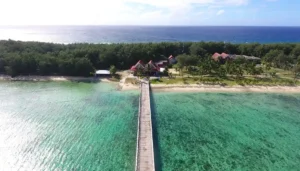
Islan Dåno’: Cocos Island
Barrier reef off Malesso’. Located approximately 1.6 km southwest of Guam lies an uninhabited barrier island called Cocos Island, or Islan Dåno’ in CHamoru. Cocos

Barrier reef off Malesso’. Located approximately 1.6 km southwest of Guam lies an uninhabited barrier island called Cocos Island, or Islan Dåno’ in CHamoru. Cocos
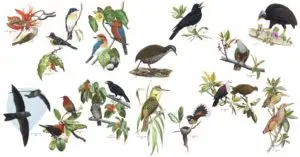
Listen to Guam birds like the Åga (Mariana Crow) and the Yǻyaguak (Mariana Gray Swiftlet).
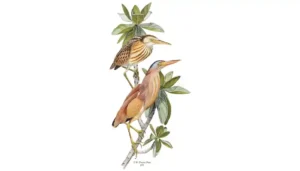
Yellow bittern live in a variety of habitats including savanna, forest, offshore islands, tangantangan, weedy tall grass and mowed fields. They feed on snails, geckos,
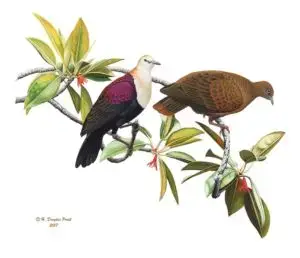
This dove lives in limestone forests and is secretive. It feeds on fruit, seeds and flowers. It nests high in trees, and both parents tend
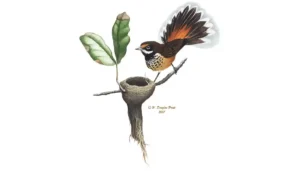
Limestone forest understory is their home. Pairs of fantails produce two nests of young a year. The nests, composed of grass and leaves glued together
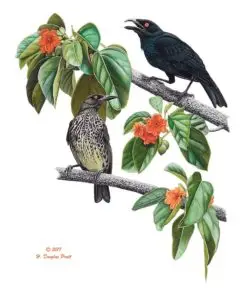
It lives in many habitats from seacoast limestone cliff faces to forested mountain tops and on atolls. Generally the Såli lives in groups. It is
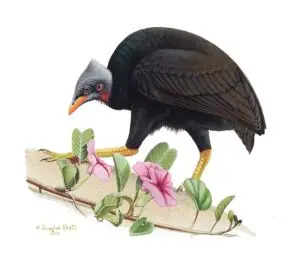
The megapode lives in limestone forests and coconut groves. Eggs are not tended by the parents but incubated in mounds of decaying vegetation or in
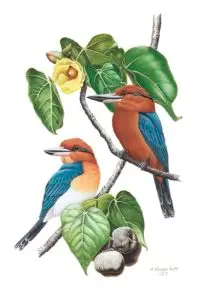
The Micronesian Kingfishers are somewhat secretive. They are known to inhabit limestone and ravine forests, coconut groves, and strand vegetation.
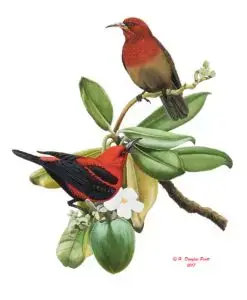
The Micronesian Honeyeater can be found in most forests edges and flowering trees in urban areas near homes and commercial buildings. It feeds on flower
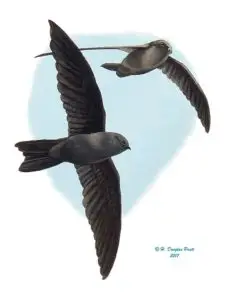
These birds live in limestone caves and sink holes in limestone and ravine forests. Their nests are constructed of moss are fastened to the roofs